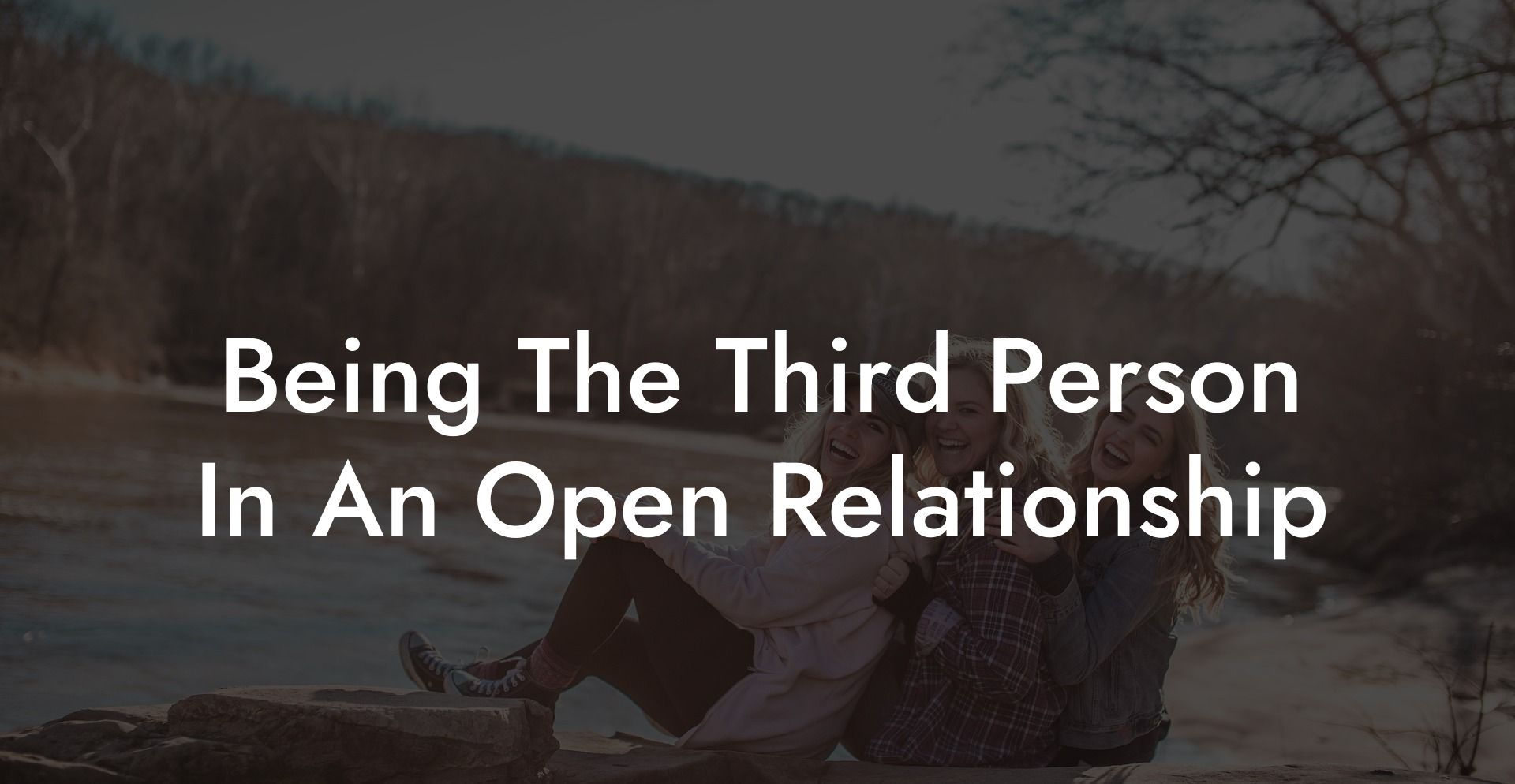Navigating the complex world of open relationships can be challenging, especially when you’re the third person entering an existing partnership. In this guide, we’ll dive into the unique dynamics of being the third person in an open relationship and provide essential tips for making your experience a positive and fulfilling one.
Being The Third Person In An Open Relationship Table of Contents
Understanding Open Relationships Basics
In an open relationship, both partners are allowed to have intimate connections and experiences with other people, oftentimes in a highly structured and agreed-upon manner. These relationships can include swinging, polyamory, and many more alternative arrangements – each with their own unique dynamics and complexities.
The Role of the Third Person
As the third person, your role in the open relationship is dependent on the agreed-upon arrangement between you and the established couple. You may be entering their relationship as a friend, a casual lover, or even a more committed partner.
Being the third person means that, apart from your connection with each individual, you must also navigate your relationship with the couple as a unit. This requires trust building, communication, and respect from all parties involved.
Essential Tips for Being the Third Person
1. Understand the Ground Rules
Each open relationship has its own set of rules and expectations. Before getting involved with a couple, it's important to understand what their guidelines are and how you can comfortably fit in. Communicate openly and honestly with both partners about the expected dynamics, and establish your own boundaries.
2. Maintain Open Communication
Communication is key in any relationship, but it's especially critical in an open relationship. Make sure you're having regular check-ins with both partners to discuss your feelings, experiences, and any possible concerns. It's essential to create a safe space in which everyone feels comfortable sharing their thoughts openly and honestly.
3. Foster Trust and Respect
Building trust and respect among all parties is crucial for a successful open relationship – not only between you and each individual partner but also you and the couple as a whole. It's essential to respect the boundaries, emotions, and desires of all parties to build a strong foundation of trust.
4. Be Patient and Flexible
Entering an established relationship can be challenging since the couple may have their own set of routines and history together. It's crucial to be patient and flexible as you navigate this new dynamic, while also asserting your own needs to ensure a balanced partnership.
5. Self-Care is Paramount
It's important to prioritize your own well-being while in an open relationship. Maintain a strong self-care routine, lean on your support system, and ensure that your personal needs are being met. Remember, you are an important part of this dynamic and deserve to feel valued and satisfied.
Being The Third Person In An Open Relationship Example:
Imagine that you've agreed to enter an open relationship with a married couple, John and Jane. The arrangement is that you'll be involved with each of them on a casual basis, with occasional threesomes. Before proceeding, ensure that there's clear understanding of the ground rules, such as relationship boundaries, sexual safety, and how to handle any potential jealousy.
As the third person in John and Jane's relationship, make sure to maintain open communication with both partners. It's important to express your feelings and address any concerns that may arise, in order to avoid misunderstandings or feelings of discomfort.
Develop a strong foundation of trust and respect with John and Jane by respecting their boundaries, acknowledging their primary partnership, and genuinely listening to their emotions and desires.
Always be patient and flexible as you navigate your role within the established relationship. Be prepared to adapt to their dynamics while also asserting your needs to ensure your happiness and well-being.
Being the third person in an open relationship may seem daunting, but with clear communication, trust, respect, and a willingness to adapt, the experience can be a positive and fulfilling one. Explore the many resources available on The Monogamy Experiment to help guide your journey into the world of non-monogamous relationships – and don't hesitate to share your own experiences with others who may be curious about this unique dynamic.













